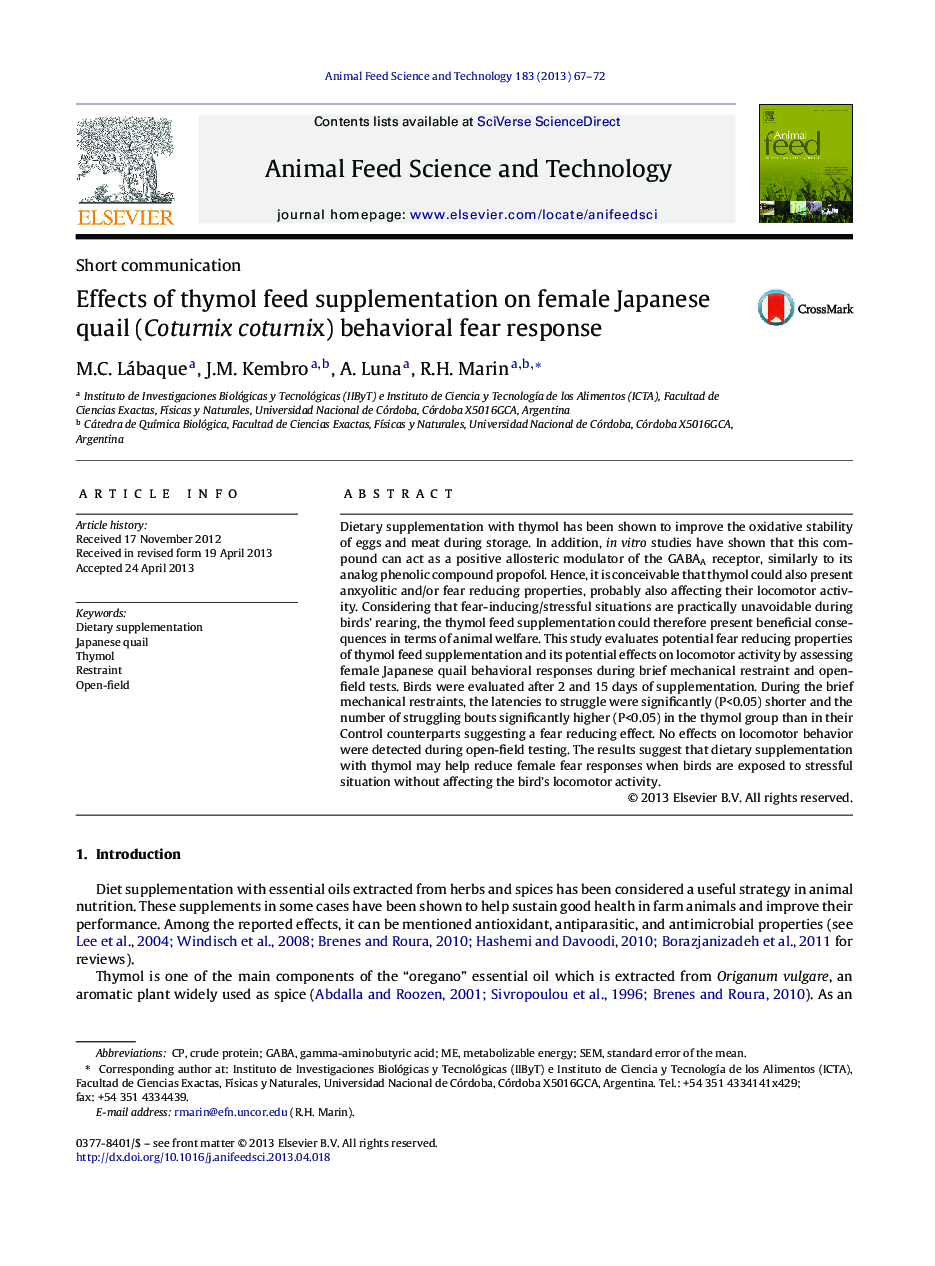| Article ID | Journal | Published Year | Pages | File Type |
|---|---|---|---|---|
| 8491871 | Animal Feed Science and Technology | 2013 | 6 Pages |
Abstract
Dietary supplementation with thymol has been shown to improve the oxidative stability of eggs and meat during storage. In addition, in vitro studies have shown that this compound can act as a positive allosteric modulator of the GABAA receptor, similarly to its analog phenolic compound propofol. Hence, it is conceivable that thymol could also present anxyolitic and/or fear reducing properties, probably also affecting their locomotor activity. Considering that fear-inducing/stressful situations are practically unavoidable during birds' rearing, the thymol feed supplementation could therefore present beneficial consequences in terms of animal welfare. This study evaluates potential fear reducing properties of thymol feed supplementation and its potential effects on locomotor activity by assessing female Japanese quail behavioral responses during brief mechanical restraint and open-field tests. Birds were evaluated after 2 and 15 days of supplementation. During the brief mechanical restraints, the latencies to struggle were significantly (P<0.05) shorter and the number of struggling bouts significantly higher (P<0.05) in the thymol group than in their Control counterparts suggesting a fear reducing effect. No effects on locomotor behavior were detected during open-field testing. The results suggest that dietary supplementation with thymol may help reduce female fear responses when birds are exposed to stressful situation without affecting the bird's locomotor activity.
Keywords
Related Topics
Life Sciences
Agricultural and Biological Sciences
Animal Science and Zoology
Authors
M.C. Lábaque, J.M. Kembro, A. Luna, R.H. Marin,
